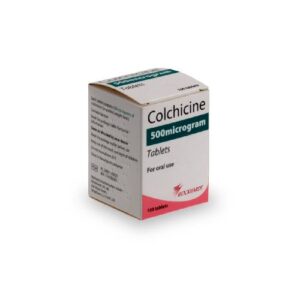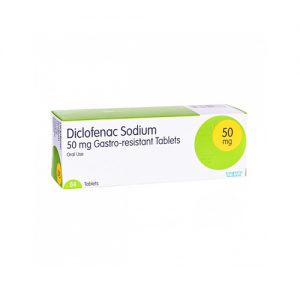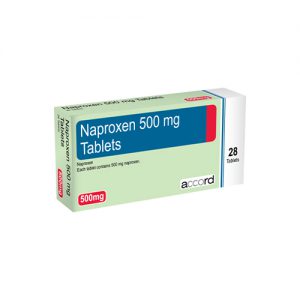Showing 4 products
Pagination
What is Gout?
Gout is a form of inflammatory arthritis that causes repeated bouts of intense joint pain, swelling, and inflammation. These painful episodes, also known as flare-ups, can be quite uncomfortable. They are caused by high levels of uric acid in the body. The metatarsal joint located in the big toe is often the joint that is most affected.
Is gout a serious condition?
Gout flare-ups can occur unexpectedly, much like uninvited visitors. They bring about intense and immediate discomfort, including redness, warmth, swelling, and severe pain in a joint, often in the big toe and typically happening at night. These symptoms can make walking and wearing shoes challenging. Gout attacks can significantly disrupt your everyday routine.
Acute gout flare-ups eventually develop into chronic recurrent attacks that can limit your mobility and daily activities and disrupt sleep, lowering your overall quality of life.
If left untreated, symptoms of gout can progressively worsen. Gouty arthritis, which is a result of high uric acid levels, can lead to the formation of urate crystals in joints and soft tissues, resulting in permanent damage and deformation. Furthermore, uric acid excretion by the kidneys can lead to kidney stones or chronic kidney disease.
Having other chronic diseases can increase the chances of getting gout. Gout is associated with high blood pressure, diabetes, obesity, and kidney disease, and can also be linked to heart attacks and strokes.
Can gout be cured?
Unfortunately, there is no cure for gout. Like many chronic conditions, gout stays in your body for life, how above it can be controlled with both lifestyle modifications and medical treatment.
Gout can't be cured, but taking the following steps can help to manage it.
1. Lifestyle changes: Lifestyle changes are essential to managing gout. Reduce alcohol, especially beer, and stay hydrated to help your kidneys process and eliminate uric acid. Obesity is a risk factor for gout, so staying healthy is important. Get help choosing a weight loss plan if you're overweight.
2. Diet: Diet can help manage gout. Reduce uric acid levels by avoiding red meat, organ meat, and certain seafood. Avoid fructose-rich foods and drinks. Instead, eat a balanced diet of whole grains, lean proteins, and fruits and vegetables.
3. Sugary drinks and fructose-sweetened foods: Studies have linked sugary drinks and fructose to gout. These drinks and foods can raise uric acid levels, causing joint urate crystals.
4. Regular exercise reduces gout attacks by maintaining a healthy weight. Walking, swimming, and cycling are low-impact exercises that can improve health and reduce gout symptoms.
Gout patients often have hypertension, heart disease, or metabolic syndrome. Gout patients' cardiovascular fitness, blood pressure, and blood glucose levels improve with regular exercise.
Exercise can also reduce stress and improve mood which can help with the psychological impacts of gout.
5. Medication: Gout management relies on medication. Gout attacks are relieved by NSAIDs, corticosteroids, and colchicine. Allopurinol, febuxostat, and probenecid reduce uric acid production. Always consult a doctor before taking these drugs.
How is gout diagnosed?
There are various tests that can be conducted to diagnose medical conditions. To determine a diagnosis, a physician may extract fluid from the impacted joint to detect uric acid crystals. Additionally, blood tests can be performed to measure the level of uric acid in your bloodstream. Imaging tests such as X-rays, ultrasound, or CT scans may also be used to assess your joints and eliminate other potential causes.
Can gout go away on its own?
Gout flares usually subside after a few days to a couple of weeks. Sometimes this spontaneous resolution makes people think the issue is resolved and they don't need to worry about it anymore.
The "iceberg" phenomenon:
However, like an iceberg, what you see on the surface doesn't always reflect what's happening underneath. The acute symptoms of gout—severe joint pain, swelling, and redness—may disappear, but they're often just the tip of the iceberg. The high uric acid that caused the flare-up may still be in your body. These elevated levels can form microscopic crystals in the joints even without symptoms.
Implications of untreated gout:
When uric acid levels remain elevated, the likelihood of experiencing recurrent gout attacks and other complications increases. These complications may include the formation of kidney stones and tophi, which are hard crystal deposits of uric acid beneath the skin. Furthermore, repeated gout attacks can lead to joint damage over time.
Collaborating with a healthcare provider is crucial for effectively managing the health of individuals with gout. They can offer expert advice on using suitable medications depending on the severity of the condition, coexisting health concerns, and potential drug interactions. By keeping a check on uric acid levels, adopting a healthy lifestyle, and adhering to a personalised treatment plan, gout can be managed effectively with a reduction in the frequency and severity of attacks.
What is Colchicine
Colchicine is an effective oral medication approved for treating acute gout flares. It functions by reducing inflammation caused by urate crystal deposits in the joints, and possesses a powerful anti-inflammatory effect.
How long to take colchicine after gout?
The length of time for colchicine treatment for gout may vary based on individual circumstances and the guidance of a medical professional. Generally, colchicine is prescribed for a brief period, usually lasting up to 5 to 7 days, to alleviate symptoms during an acute gout flare-up.
Is Colchicine a good treatment for gout?
Colchicine is considered a good treatment option for acute gout. It is commonly used to relieve the pain and inflammation associated with gout attacks.
How much colchicine can I take for gout?
To effectively treat gout with colchicine, it is essential to follow the recommended dosage as directed by a healthcare provider. The appropriate dosage may vary depending on the patient's condition, but it is critical to avoid exceeding the recommended limits. Adhering to the prescribed dosage is key to achieving successful treatment outcomes.
What is the best way to take colchicine for gout?
To effectively take colchicine for gout, it's best to adhere to the guidance from your healthcare provider or the medication label. You can take colchicine with or without food, but it's advisable to consume it with a full glass of water to prevent any potential stomach discomfort.
Can I take colchicine 3 times a day?
Taking colchicine three times a day may be prescribed in some cases, but the dosage and frequency should be determined by a healthcare professional based on your specific condition.
What factors to consider when taking colchicine?
It's crucial to be aware of possible drug interactions when taking colchicine. This medication is both a P-glycoprotein (P-gp) and CYP3A4 substrate, meaning it's transported by the P-gp protein and metabolized by the CYP3A4 enzyme. Certain drugs and substances can affect the levels of colchicine in your body by inhibiting these enzymes. To avoid any complications, it's recommended that you consult your healthcare provider or pharmacist regarding potential drug interactions before taking colchicine.
Which is better allopurinol or colchicine?
Gout treatment involves the use of two distinct medications - allopurinol and colchicine - which work differently. Allopurinol functions as a xanthine oxidase inhibitor, which reduces uric acid production, while colchicine serves as an anti-inflammatory agent that eases symptoms of gout attacks.
Deciding which medication to use depends on various individual factors like the severity of gout, frequency of attacks, and any other underlying medical conditions. Therefore, consulting with a healthcare professional is recommended to determine the most appropriate medication for your particular situation.
What is the best medicine for gout?
Various medications can be used to treat gout, such as nonsteroidal anti-inflammatory drugs (NSAIDs), colchicine, corticosteroids, and xanthine oxidase inhibitors like allopurinol or febuxostat. The most suitable medicine for gout varies depending on several factors, including the individual's medical history, overall health, and specific symptoms. To identify the most appropriate treatment for your condition, it is essential to seek guidance from a healthcare professional.
When taking colchicine, it's important to take into account its effects on kidney health. Colchicine is eliminated from the body through the kidneys, so people with kidney disease or reduced kidney function may require a modified dosage to prevent toxic effects. Keeping a close eye on kidney function is crucial while on colchicine treatment, particularly if someone has a history of kidney stones or chronic kidney disease.
What is a quick cure for gout
Managing gout is a long-term process and there is no one "quick fix" for it. During a gout flare-up, medications such as colchicine, nonsteroidal anti-inflammatory drugs (NSAIDs), or corticosteroids can be used to alleviate symptoms.




We’re here to help.
Our friendly team is available to help Monday to Friday 9:00am - 5:00pm.
If you need urgent assistance, do not use this service. Call 111, or in an emergency call 999.




